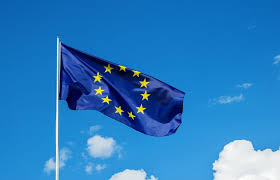In the digital age, concerns about privacy and data protection have become paramount, prompting the European Union (EU) to contemplate imposing stricter regulations to safeguard individuals’ digital rights.
Understanding the Need for Digital Privacy Regulations
1. Introduction to Digital Privacy
Digital privacy refers to the protection of personal data and online privacy rights in an increasingly interconnected world. With the proliferation of digital technologies and online platforms, the need to ensure the confidentiality, integrity, and availability of personal information has become critical.
2. Importance of Privacy Regulations
Privacy regulations play a crucial role in safeguarding individuals’ rights to privacy and data protection. They provide a framework for organizations to collect, process, and store personal data responsibly, ensuring transparency, accountability, and user consent.
Current State of Digital Privacy Regulations in the EU
1. Overview of GDPR
The General Data Protection Regulation (GDPR), implemented by the EU in 2018, is one of the most comprehensive and stringent privacy regulations globally. It aims to harmonize data protection laws across EU member states and enhance individuals’ control over their personal data.
2. Evolving Landscape
Despite the GDPR’s effectiveness in strengthening privacy rights, technological advancements and emerging privacy concerns have prompted calls for further action to address evolving challenges such as data breaches, online tracking, and algorithmic discrimination.
Proposed Stricter Regulations
1. Strengthening GDPR Provisions
The EU is considering amendments to the GDPR to enhance its effectiveness and address gaps in existing regulations. This may include imposing stricter penalties for non-compliance, expanding the scope of personal data, and introducing new safeguards for emerging technologies.
2. Addressing Emerging Challenges
The proposed regulations aim to tackle emerging challenges in digital privacy, such as the proliferation of online tracking technologies, the use of AI-driven decision-making systems, and the impact of data-driven advertising on user privacy.
Potential Impact and Implications
1. Enhancing User Protections
Stricter privacy regulations would empower individuals with greater control over their personal data, enhancing transparency, consent, and accountability in data processing practices.
2. Promoting Innovation and Trust
By fostering a trusted and secure digital environment, stricter privacy regulations can stimulate innovation, foster consumer trust, and promote responsible data-driven business practices.
As the EU contemplates stricter digital privacy regulations, it underscores the importance of balancing innovation with privacy rights to build a sustainable and inclusive digital economy. By addressing emerging challenges and strengthening existing frameworks, the EU aims to uphold individuals’ fundamental right to privacy in the digital age.




